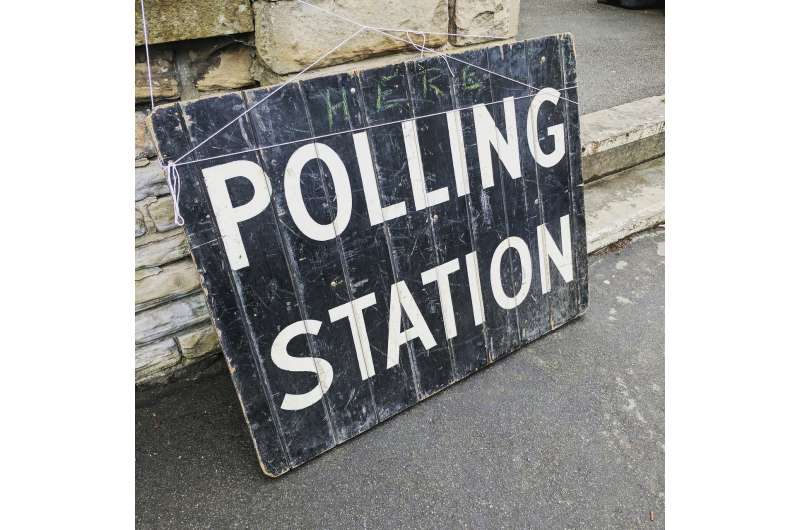Science
Study Links Voting Behavior to Increased Risk of Death

Research highlights a significant link between voting behavior and the future risk of death, indicating that electoral participation may be a stronger determinant of health than education. This revelation comes from a study published in the Journal of Epidemiology & Community Health, which suggests that voting could serve as a social determinant of health—factors outside the medical realm that influence well-being.
Over recent years, scholars have increasingly examined how voting in national and local elections affects health outcomes. Previous studies have shown that voters tend to have better health than non-voters, but the direct correlation between electoral participation and mortality risk had not been clarified until now.
To investigate this relationship, researchers analyzed data from the 1999 parliamentary elections in Finland. The study included over 3.1 million Finnish citizens aged 30 and older, tracking their survival from March 21, 1999, until death or the end of 2020. The voter turnout for this demographic was notably high, with 71.5% of men and 72.5% of women participating.
From this large cohort, the researchers identified that between 1999 and 2020, a total of 1,053,483 individuals died. Among these fatalities, 95,350 were attributed to external causes such as accidents and violence. The study found that not voting was linked to a 73% increased risk of death for men and a 63% increased risk for women. After adjusting for education levels, these figures were slightly reduced but still significant, indicating a 64% and 59% heightened risk, respectively.
The findings suggest that the disparity in mortality risk between voters and non-voters was even greater than the difference observed between individuals with basic education and those with tertiary education. Particularly concerning was the stronger association between voting and mortality due to external causes compared to other health issues.
The risk of death for non-voters doubled when age was considered, with the most pronounced differences occurring among men under 50. Interestingly, among older adults aged 75 to 94, women who did not vote had a higher risk of death compared to men who did vote, illustrating varying impacts across age and gender demographics. Furthermore, men in the lowest 25% of household income faced a 9–12% higher risk of mortality associated with non-participation in elections compared to their higher-income counterparts.
While this observational study cannot definitively establish causation, the researchers highlight the compelling association between voting and mortality. The findings suggest that voting behavior could be a critical indicator of broader health trends, making it a valuable consideration in clinical settings.
The researchers note that changes in voting habits might signal significant health declines, emphasizing the importance of monitoring electoral participation as part of assessing population well-being and health disparities. They argue that the strong correlation between voting and mortality raises concerns about equitable political representation, particularly in marginalized communities.
In conclusion, this study sheds light on the profound implications of voting behavior, suggesting that civic engagement may play a crucial role in overall health outcomes. As more evidence emerges, understanding the relationship between social participation and health will be essential for addressing health inequalities and enhancing community well-being.
-

 Lifestyle3 months ago
Lifestyle3 months agoLibraries Challenge Rising E-Book Costs Amid Growing Demand
-

 Sports3 months ago
Sports3 months agoTyreek Hill Responds to Tua Tagovailoa’s Comments on Team Dynamics
-

 Sports3 months ago
Sports3 months agoLiverpool Secures Agreement to Sign Young Striker Will Wright
-

 Lifestyle3 months ago
Lifestyle3 months agoSave Your Split Tomatoes: Expert Tips for Gardeners
-

 Lifestyle3 months ago
Lifestyle3 months agoPrincess Beatrice’s Daughter Athena Joins Siblings at London Parade
-

 World3 months ago
World3 months agoWinter Storms Lash New South Wales with Snow, Flood Risks
-

 Science3 months ago
Science3 months agoTrump Administration Moves to Repeal Key Climate Regulation
-

 Science2 months ago
Science2 months agoSan Francisco Hosts Unique Contest to Identify “Performative Males”
-

 Business3 months ago
Business3 months agoSoFi Technologies Shares Slip 2% Following Insider Stock Sale
-

 Science3 months ago
Science3 months agoNew Tool Reveals Link Between Horse Coat Condition and Parasites
-

 Sports3 months ago
Sports3 months agoElon Musk Sculpture Travels From Utah to Yosemite National Park
-

 Science3 months ago
Science3 months agoNew Study Confirms Humans Transported Stonehenge Bluestones









